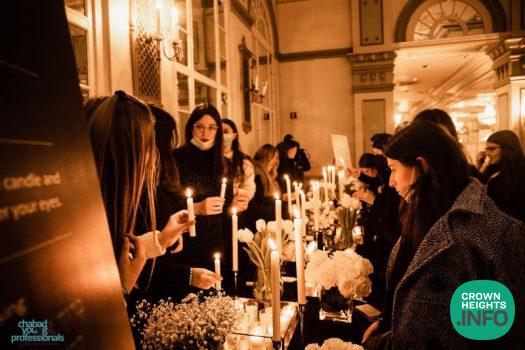
Weekly Dvar Torah: The Power of Miriam and The Jewish Woman
Moshe’s sister, Miriam the prophetess, spoke badly about her brother Moshe, and she was punished with leprosy. The entire Jewish people of six hundred thousand households; over two million people, stayed put and didn’t travel for 7 days, until Miriam was cleansed of the leprosy. Only then did they continue their travels. [A leper must be secluded from the community for seven days, this way becoming pure, and only then can come back into the community.]
Rashi explains this waiting as a sign of honor that Hashem rewarded Miriam for the one hour that she waited, watching her brother Moshe. He was placed between the reeds of the Nile by his mother, who could no longer protect him at home from Pharaoh’s decree to kill all male newborns.
What exactly happened when Miriam was waiting on Moshe from a distance at the Nile? How are the Jewish people waiting for Miriam for seven days a reward for her waiting over Moshe for one hour?
Miriam clearly didn’t try to rescue Moshe from the Nile, because that was impossible at the time. But she did wait to see what would happen to him. Why?
Miriam was not worried about the safety of Moshe, she was confident that everything would be okay. But she wanted to witness how it happened.
Remember Miriam; she was the one who prevailed on her father Amram, the Jewish leader at that time to remarry his wife Yocheved, whom he had divorced because of Pharaoh’s decree to kill all male newborns. She convinced him that they should have more children, and from that marriage Moshe the redeemer was born.
Amram was afraid, but Miriam was not. And she triumphed.
When Moshe was born, she saw how the house was filled with light. Miriam then knew instinctively that she did the right thing. But she was anxious to see how things would develop, so when he was placed in the Nile, she went and waited from a distance by the Nile.
Then came Pharaoh’s daughter Batya, and she found a baby crying, and she couldn’t calm him down. Miriam was right there to the rescue offering to bring a Jewish nursing mother to feed the child. She shortened the time Batya needed to search for a Jewish nursing mother to save this child.
Miriam knew and saw that this entire circumstance of events was one filled with miracles, and she was not worried. But, she waited near Moshe to watch the miracles unfold.
When Miriam had leprosy, she had to be outside the camp for seven days. Obviously, she was protected and safe even in the middle of the desert. But being secluded outside the camp is a necessary condition for purification.
The issue is that this process must take place outside an encampment. But when the Jews travel, there is no camp. So the process of cleansing from leprosy can’t go forward, until they set up camp once again when they conclude their travels. And this would delay the purification process, and her return to the community.
This was the tremendous honor Miriam received from Hashem by the entire Jewish people. They waited for her in the camp, and refrained from any travel, just to hasten her purification process. Because eighty years earlier, she waited on her brother for one hour at the Nile, to see the miracles unfold.
This is the powerful message we learn from Miriam, and about Miriam.
She was the quintessential believer and optimist. Miriam always knew that everything would be okay. Pharaoh could never destroy the Jewish people. She believed it all the way, even when her father wavered. Therefore, she went ahead and persuaded her father to gather strength and bring more children into the world. The redeemer was born as a result. Later, she accompanied her brother (albeit from a distance) when he was placed in the Nile, knowing that he would be saved. And she ended up hastening his rescue.
The power of Miriam is the power of every Jewish woman and girl, they who are the ultimate believers, and the saviors of the Jewish people at every turn.
Esther put her life on the line to save the Jewish people, for which we got the holiday of Purim. Chana showed us what true education is, and for this we celebrate Chanukah. During the communist regime in Russia, the women were the ones who arranged for Brissen for the children. And throughout history in good times and bad, the mothers are the ones who teach the children to say the Shema for the first time. And they are the ones who sing about Hashem to the infants. It is the Jewish woman who nurtures and preserves the Jewish people.
And for that they are singled out and given honor by G-d, and by the entire Jewish nation, always and forever.
Have an honorable sisterly Shabbos,
Gut Shabbos
Rabbi Yosef Katzman












